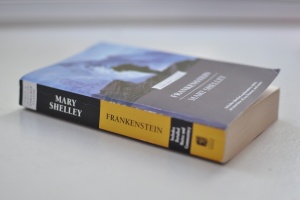I always look forward to book club night!
Thursday night did not disappoint!
My sister and I showed up at the same time…
wearing the same cardigan.
It happens. 🙂
Our conversation covered everything from Frankenstein to Twilight, believe it or not! We even touched on Little Mermaid somewhere in the middle!
There also may or may not have been some singing of “Monster Mash” sometime throughout the evening.
Here are some notes I jotted down while we chatted:
~We would have loved to see how the monster spied on the family of peasants for so long without being noticed! (Personally this was my favorite part. Seeing how he learned about human nature, language and to sense moods and feelings fascinated me!)
~Surprised at how articulate the monster was, what a big vocabulary!
~Was there any residual memories from the brain used in creating him? Just wondering.
~The majority felt sorry for the monster, yet not excusing his actions. None of us felt sorry for Victor.
~Such a willingness to take human life showed a lack of humanity.
~Personally, I thought it would have been helpful if the monster had a big hat. 🙂
Some plot things that left us wondering:
~What happened to Victor’s other brother? Did Shelley leave him unmentioned so she could create a sequel?
~The monster knew to take Victor’s notes when he left right after he was brought to life. How would he know these were important or that he’d ever want them?
~The idea that Victor could even create life was far fetched. Gen. 2:18 says it is not good for man to be alone. Definitely the case for Victor. Although if he hadn’t holed up in this apartment this would have been a short story.

Let me close with this spoiler and a question:
No one got their liver eaten every day.
Who do YOU think was the “champion of mankind” in this story?


